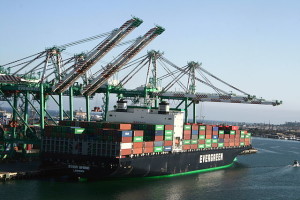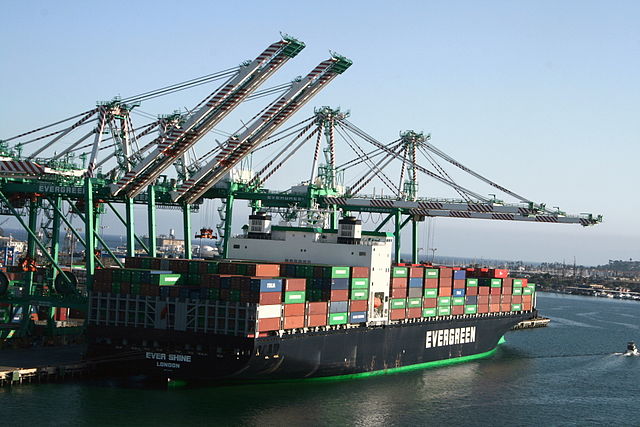 Container carriers on the Asia-U.S. trade lane are undertaking a phased rate hike in the next two months and making rate and non-rate adjustments to their upcoming service contracts in a bid to recover costs, according to a new release by the Transpacific Stabilization Agreement (TSA).
Container carriers on the Asia-U.S. trade lane are undertaking a phased rate hike in the next two months and making rate and non-rate adjustments to their upcoming service contracts in a bid to recover costs, according to a new release by the Transpacific Stabilization Agreement (TSA).
TSA said that “in a container freight market challenged by volatility and facing the prospect of further consolidation,” its member shipping lines will impose a phased increase in rates and a package of 2016-17 service contract guidelines “intended to ensure greater pricing predictability and service reliability.”
First, TSA lines are recommending adjustments to minimum rates across the board on December 1, 2015 and on January 1, 2016.
For December 1, the lines will be seeking to restore the lowest current market rate levels to at least US$950 per 40-foot container (FEU) to the U.S. West Coast; $1,700 per FEU to the U.S. East and Gulf Coasts; and $2,950 per FEU for intermodal moves to key Chicago-area inland point destinations.
For January 1, TSA members are recommending that a general tariff rate increase be filed in the amount of $1,200 per FEU to the West Coast and $1,600 per FEU to the East and Gulf Coasts. Carriers say their objective is “to establish more compensatory baseline revenue levels as they head into service contract negotiations, and in advance of the Lunar New Year holiday in Asia that begins in early February.”
“Transpacific lines are adjusting to a new normal of larger ships and complex alliances, necessitated by cost and environmental compliance pressures—all in the context of an uncertain global economic environment,” explained TSA executive administrator Brian Conrad. “Irrespective of cyclical supply-demand issues, it is critical that these global infrastructure providers get their pricing right and fully recover their costs through meaningful, staged rate increases heading into 2016.”
TSA has also finalized its 2016-17 service contract program, which will focus on revenue improvement through both rate and non-rate items.
For all 2016-17 service contracts, most of which take effect on May 1, TSA lines are recommending longer-term minimum rates of $1,700 per FEU to the West Coast, and $2,900 per FEU to the East and Gulf Coasts.
In addition, the contract program will include adjustments to non-rate charges and practices in areas such as absorption of chassis costs; free-time allowances; port and rail demurrage charges; equipment detention and per diem; full recovery of current and projected trucking costs; intermodal pricing; credit policies; and contract boiler plate terms.
“Lines have learned the hard way that small concessions to a customer here and there expand quickly across the trade and add up, over time, to a lot of money left on the table,” Conrad said. “Beyond that, addressing these non-rate items will also help to improve equipment velocity and availability, toward a more efficient and robust supply chain.”
Finally, TSA noted how larger linehaul vessels are making fewer port calls, leading to higher feeder service and other transshipment costs in maintaining route coverage throughout Asia.
“Lines will be closely reviewing their schedules of feeder port add-ons in light of rising costs, and will make specific adjustments to those add-ons as warranted in upcoming contracts.”
TSA is a research and discussion forum of major container shipping lines serving the trade from Asia to ports and inland points in the U.S. Members include APL, China Shipping Container Lines, CMA-CGM, COSCO Container Lines, Evergreen Line, Hanjin Shipping Co., Hapag-Lloyd, Hyundai Merchant Marine, Kawasaki Kisen Kaisha, Maersk Line, Mediterranean Shipping Co., Nippon Yusen Kaisha, Orient Overseas Container Line, Yangming Marine Transport, and Zim Integrated Shipping Services.
Photo: Prayitno





